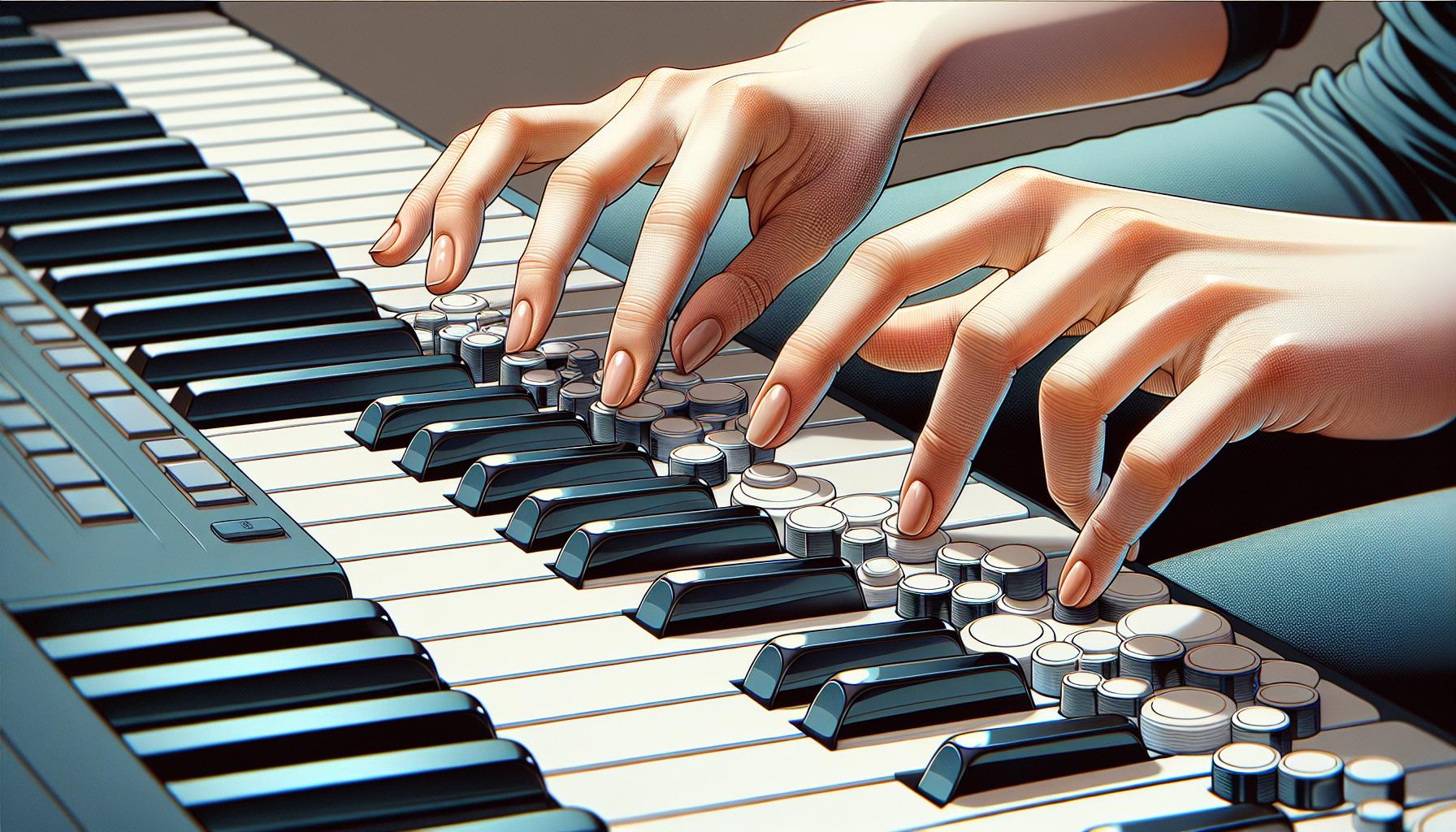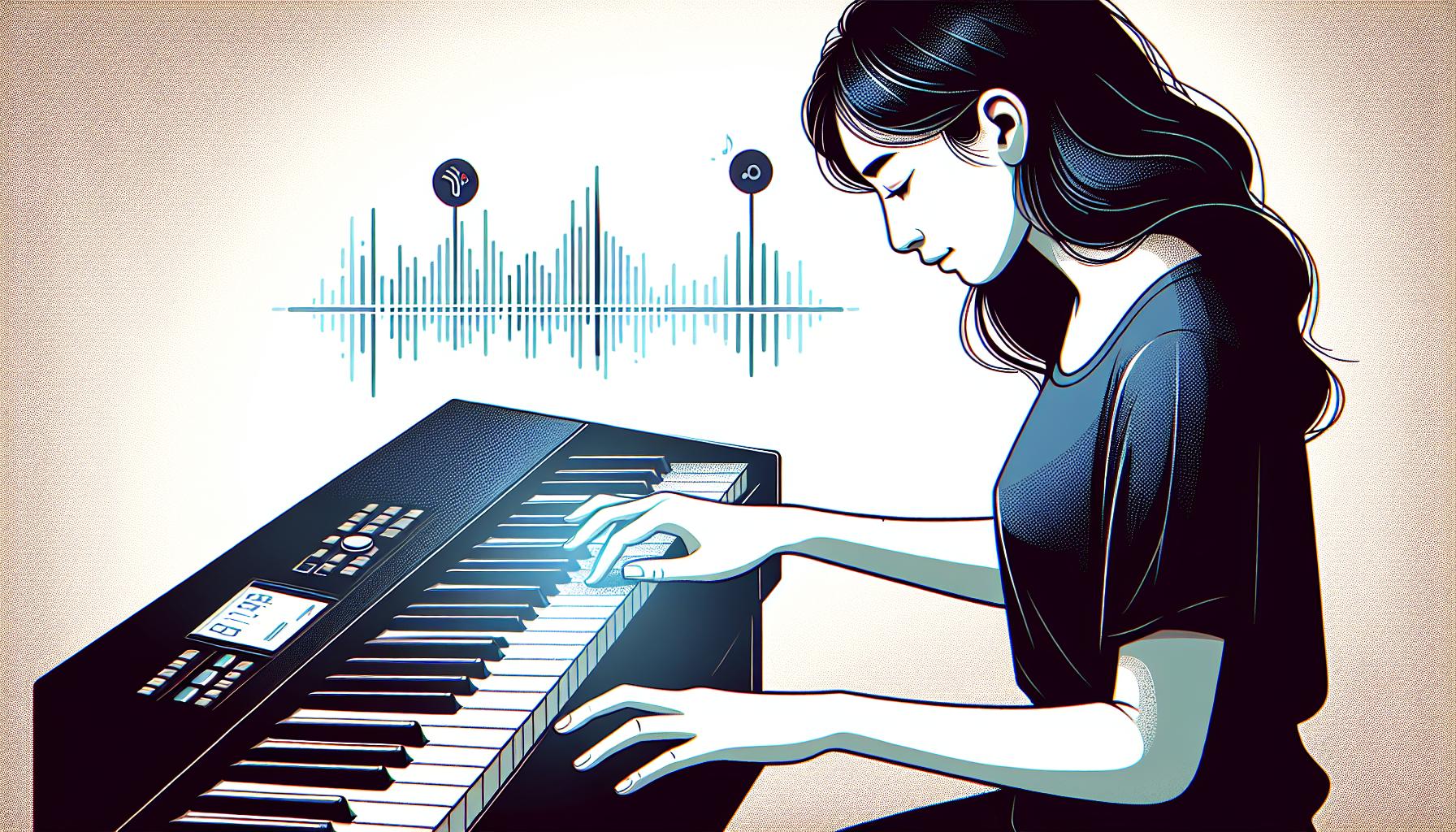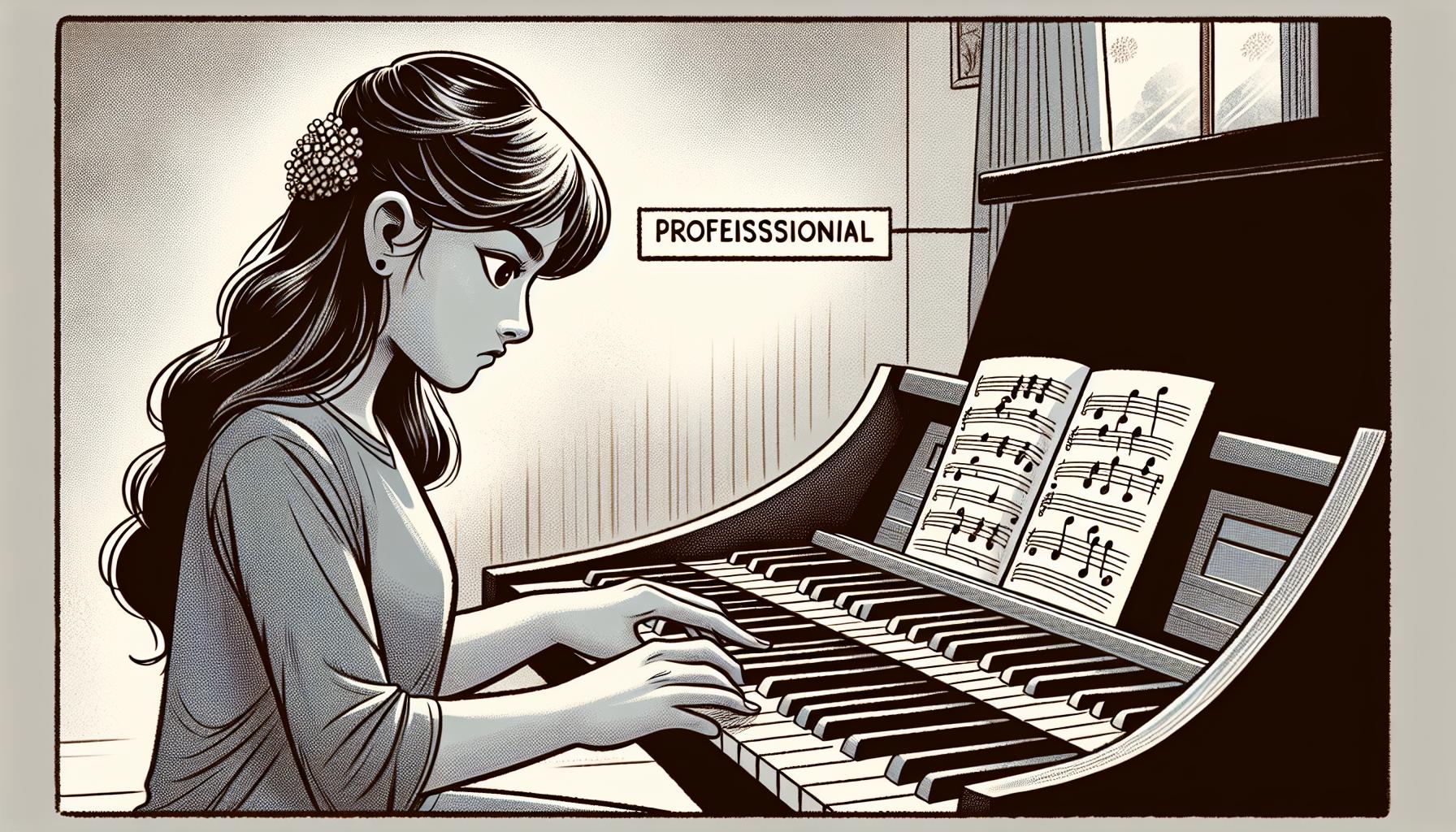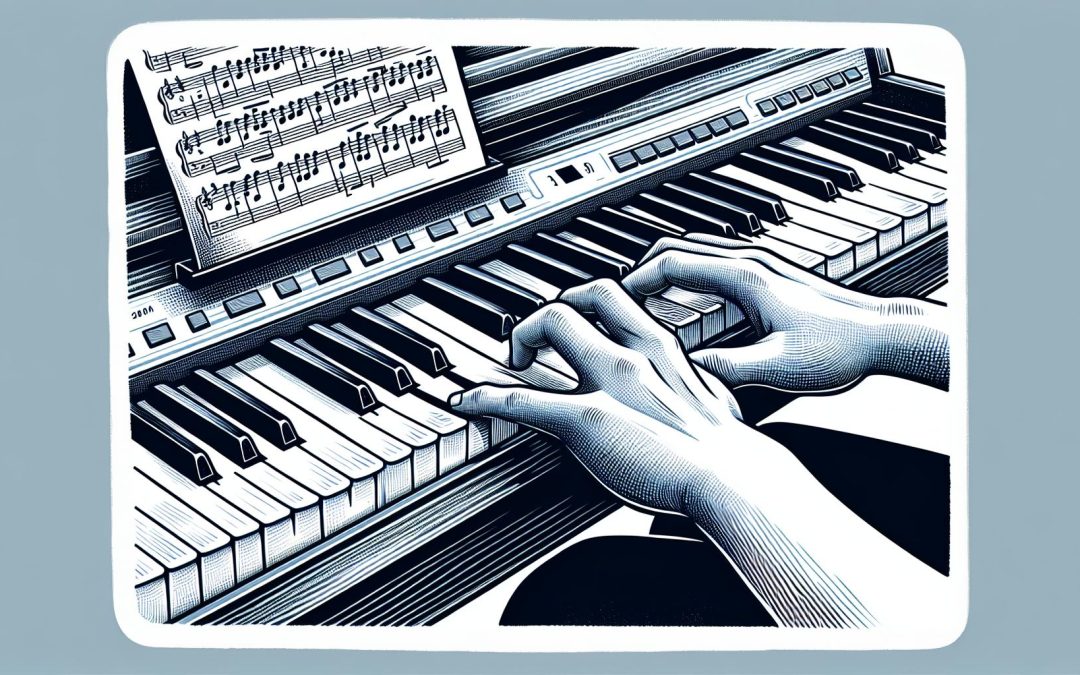Stepping into the world of music can be thrilling, and choosing the right keyboard is a crucial first step for any beginner. With the vast array of options out there, it's easy to feel overwhelmed. However, keyboards with weighted keys are often recommended to mimic the tactile response of an acoustic piano, making them an ideal choice for novices.
But what makes a keyboard with weighted keys stand out for beginners? It's not just about the feel; it's also about building the proper technique from the get-go. Let's dive into why weighted keys could be your best bet in starting your musical journey on the right note.
Benefits of Weighted Keys for Beginners
Realistic Feel and Touch Response
Weighted keys provide a realistic feel similar to that of an acoustic piano, which is crucial for beginners as they embark on their musical journey. This tactile feedback is essential for developing the correct finger strength and technique from the start. The resistance of weighted keys mimics the hammers inside an acoustic piano, offering a touch response that is invaluable for learning dynamics and expression. Beginners find that weighted keys provide a solid foundation for transitioning to playing on an acoustic piano in the future.
Enhanced Learning Experience
The learning curve for beginners is significantly smoothed out with weighted keyboards. The consistent finger technique required by weighted keys helps in developing muscle memory much quicker. As a result, students can focus on the music itself, rather than struggling with the peculiarities of their instrument. This ultimately leads to a more enjoyable and successful learning experience, as students can produce music that sounds more nuanced and expressive early on in their journey.
Improved Muscle Development and Technique
Playing on a keyboard with weighted keys promotes proper finger technique and muscle development. This is particularly important for beginners who have not yet developed the muscle groups required for effective piano playing. The weight of these keys ensures that students learn to play with the correct amount of pressure, encouraging the development of a delicate touch and control over the keyboard. This not only benefits their playing technique but also reduces the risk of injury due to overexertion or incorrect positioning.
Suitability for a Wide Range of Music
Weighted keyboards are versatile, making them suitable for a broad spectrum of musical genres. Whether a student is interested in classical music that demands precise touch and dynamics or contemporary pieces that require a variant of styles, weighted keys can accommodate these needs. This versatility ensures that beginners are not limited in their musical exploration and can develop a diverse repertoire from the start.
Long-Term Investment
Opting for a keyboard with weighted keys is a wise long-term investment for beginners. While there might be a higher initial cost compared to non-weighted keyboards, the benefits of learning on an instrument that closely replicates an acoustic piano are invaluable. It equips students with the skills and confidence needed to play on any piano, ensuring that they won't need to relearn techniques or adjust to a different touch response as they progress. Additionally, the robust construction of these keyboards means they tend to last longer, providing more value over time.
Factors to Consider When Choosing Weighted Keys

When venturing into the world of music, especially from a beginner's standpoint, selecting the right keyboard can be a daunting task. Among the numerous features to consider, weighted keys stand out for their significant impact on learning and playing experience. They're a crucial factor for those looking to mimic the tactile feedback of an acoustic piano. Therefore, understanding the aspects that contribute to an ideal choice is essential.
Type of Weighting
Primarily, keyboards with weighted keys come in various types of weighting mechanisms. The main types include:
- Semi-Weighted: A lighter feel than fully weighted keys, suitable for those who might find heavy keys too strenuous.
- Fully Weighted: These keys offer a resistance that closely mimics that of an acoustic piano, beneficial for a more authentic playing experience.
- Graded Hammer Action: Mimicking the slight difference in weight across an acoustic piano's keyboard – heavier in the lower octaves and lighter in the higher ones. It's considered the gold standard for a realistic piano feel.
Understanding these differences helps in making an informed decision based on personal preference and the specific tactile experience one is looking for.
Touch Sensitivity
The touch sensitivity of a keyboard refers to how the sound responds to the pressure applied to the keys. This feature allows for expressive playing, as the keyboard can capture the nuances of soft and loud playing. For beginners, keyboards that offer adjustable touch sensitivity settings can be particularly beneficial. They allow for the gradual increase of sensitivity as one's skill level improves, promoting a dynamic range of play.
Key Material and Texture
While it might seem like a minor detail, the key material and texture can significantly affect a beginner's practice sessions. Keys made from high-quality materials that imitate the ebony and ivory of traditional acoustic pianos offer better grip and reduce the likelihood of fingers slipping during extended practice. Some digital pianos also feature moisture-absorbing keys, ensuring comfort during longer playing sessions.
Sound Quality
Although not directly related to the physical aspect of weighted keys, the sound quality of a keyboard is inevitably tied to the playing experience. High-quality sound samples and a robust sound engine ensure that the output closely resembles that of an acoustic piano, making practice sessions more rewarding and enjoyable. Advanced sound technology can also simulate the nuances of hammer action, pedal use, and string resonance, adding to the authenticity of the experience.
Top Picks for Keyboards with Weighted Keys

Choosing the right keyboard with weighted keys can be a pivotal step for beginners on their musical journey. There are numerous options available, but a few stand out for their quality, features, and value for money. These top picks have been selected based on their touch sensitivity, key texture, and overall sound quality, ensuring beginners have a fulfilling learning experience.
Yamaha P-45 Digital Piano
Yamaha is renowned for producing some of the best musical instruments, and the P-45 Digital Piano is no exception. It boasts 88 fully-weighted keys with a graded hammer standard (GHS) action, which closely mimics the feel of an acoustic piano. For beginners, this feature is invaluable as it helps develop proper finger strength and technique from the start.
- Touch Sensitivity: Adjustable to four levels, allowing customization based on the player's preference.
- Sound Quality: Utilizes Advanced Wave Memory (AWM) sampling to create a deep, rich, and spacious sound.
The P-45 is an exemplary option for beginners who are looking for a straightforward, quality piano experience without overwhelming features.
Casio Privia PX-160 Digital Piano
The Casio Privia PX-160 stands out for its impressive Tri-Sensor Scaled Hammer Action II keyboard, which offers a realistic piano touch. This model is designed to cater to the nuance and detail of piano playing, making it a great choice for beginners who wish to learn on an instrument that feels as close to an acoustic piano as possible.
- Key Material and Texture: Comes with ebony and ivory feel keys, reducing slippage during prolonged use.
- Sound Quality: Features Casio's Multi-Dimensional AiR Sound Source, providing exceptional clarity and depth.
With its top-notch sound and feel, the PX-160 is perfect for those seeking an authentic piano playing experience in a digital format.
Korg B1SP Digital Piano
Ideal for those on a tight budget, the Korg B1SP offers great value without compromising on quality. It's equipped with Natural Weighted Hammer Action (NH) keys, offering a lighter touch in the high notes and a heavier touch in the low notes, similar to traditional pianos.
- Touch Sensitivity: Three levels of touch control to accommodate different styles of playing.
- Sound Quality: Uses MFB (Motional Feedback) technology to accurately reproduce the piano’s resonant
Tips for Beginner Keyboard Players

When venturing into the world of keyboards, beginners often find themselves overwhelmed with options and features. To ease this journey, there are several tips that can help beginner keyboard players enhance their learning experience and ensure they're on the right track to mastering their new instrument.
Start with the Basics
It's crucial for beginners to start with the fundamentals of music theory and keyboard techniques. Understanding the basic concepts of melody, harmony, and rhythm will lay a strong foundation for future progress. Beginners should familiarize themselves with reading music, identifying notes on the keyboard, and practicing simple scales and chords. These essential skills are the building blocks of music and will greatly assist in the learning process.
Set Realistic Goals
Setting achievable goals is important for maintaining motivation and tracking progress. Beginners should set small, realistic objectives, such as learning a new chord each week or mastering a simple song within a month. Achieving these goals will provide a sense of accomplishment and encourage further learning. It's important to remember that everyone's learning pace is different, and patience is key.
Practice Regularly
Regular practice is vital for developing muscle memory and improving performance. Beginners should aim to practice for at least 20 to 30 minutes daily. Consistency is more important than the length of practice sessions, as regular, short practices can be more effective than sporadic, long sessions. Practicing can be made more enjoyable by including a variety of exercises and pieces to play.
Invest in a Quality Instrument
Playing on a quality keyboard with weighted keys can significantly impact a beginner's learning experience. Weighted keys simulate the touch and feel of an acoustic piano, making the transition easier for those who wish to play both instruments. As highlighted earlier, keyboards like the Yamaha P-45, Casio Privia PX-160, and Korg B1SP are excellent choices for beginners due to their realistic key action and sound quality.
Seek Feedback and Resources
Receiving feedback from knowledgeable sources, such as music teachers or experienced players, can provide valuable insights for improvement. Additionally, there are countless resources available online, including tutorials, forums, and free sheet music. Beginners should take advantage of these resources to supplement their learning and explore different genres and styles of music.
Conclusion
Choosing the right keyboard is a crucial step for any beginner eager to dive into the world of music. With options like the Yamaha P-45, Casio Privia PX-160, or Korg B1SP, beginners have excellent choices that offer the feel of an acoustic piano and help build proper technique from the start. Remember, the journey to mastering the keyboard is filled with learning and growth. By setting clear goals, practicing diligently, and seeking out advice and resources, beginners can make significant strides in their musical journey. Let the adventure begin with the touch of weighted keys under your fingers!
Harlan Kilstein began playing piano during covid with no piano background at all. He taught himself how to play learning what to do and what not to do.
Today he's an advanced intermediate player and can help you grow in your skills because he learned all this on his own.








